-
 Bitcoin
Bitcoin $92,680.4827
-1.06% -
 Ethereum
Ethereum $1,752.0353
-3.50% -
 Tether USDt
Tether USDt $0.9999
-0.04% -
 XRP
XRP $2.1604
-4.74% -
 BNB
BNB $597.8192
-2.41% -
 Solana
Solana $147.9772
-2.60% -
 USDC
USDC $0.9997
-0.03% -
 Dogecoin
Dogecoin $0.1737
-5.16% -
 Cardano
Cardano $0.6892
-2.10% -
 TRON
TRON $0.2446
-0.60% -
 Sui
Sui $2.9979
3.29% -
 Chainlink
Chainlink $14.4341
-3.88% -
 Avalanche
Avalanche $21.9989
-3.49% -
 UNUS SED LEO
UNUS SED LEO $9.2400
1.80% -
 Stellar
Stellar $0.2656
-2.51% -
 Toncoin
Toncoin $3.1060
-0.80% -
 Shiba Inu
Shiba Inu $0.0...01313
-4.02% -
 Hedera
Hedera $0.1788
-3.78% -
 Bitcoin Cash
Bitcoin Cash $345.5624
-3.92% -
 Polkadot
Polkadot $3.9957
-3.28% -
 Litecoin
Litecoin $81.6247
-3.40% -
 Hyperliquid
Hyperliquid $17.8730
-6.22% -
 Dai
Dai $0.9999
0.00% -
 Bitget Token
Bitget Token $4.3985
-4.10% -
 Ethena USDe
Ethena USDe $0.9993
-0.02% -
 Pi
Pi $0.6479
-2.82% -
 Monero
Monero $223.6877
-2.21% -
 Uniswap
Uniswap $5.7553
-4.88% -
 Pepe
Pepe $0.0...08521
-6.96% -
 Aptos
Aptos $5.2919
-1.64%
What is the difference between coin-margined perpetual contracts and USDT perpetual contracts?
Coin-margined perpetual contracts offer direct cryptocurrency exposure with higher leverage, while USDT perpetual contracts provide stability and simplified risk management by using Tether (USDT) as collateral.
Nov 21, 2024 at 03:56 pm
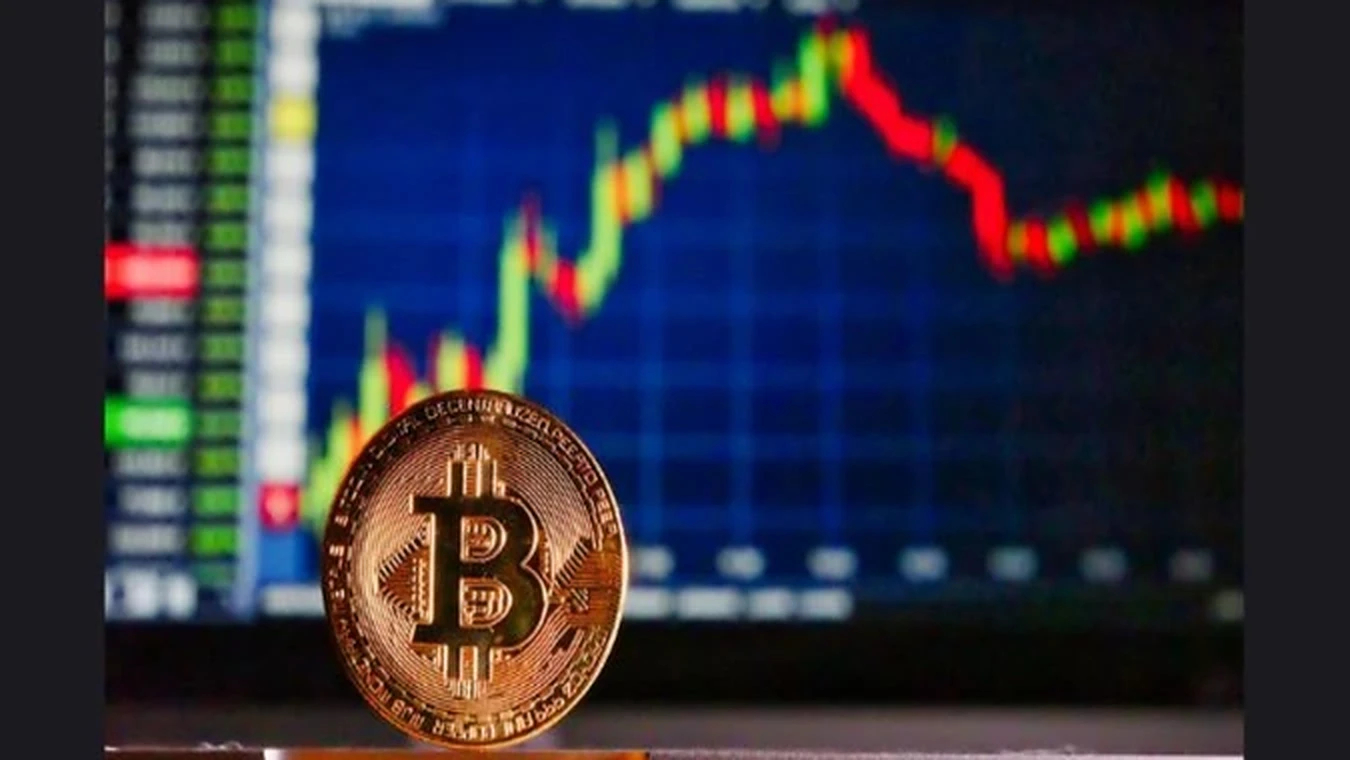
Understanding Coin-Margined vs. USDT Perpetual Contracts: A Comprehensive Guide
In the dynamic realm of crypto derivatives, perpetual contracts play a pivotal role. Among the various types available, coin-margined and USDT-margined perpetual contracts stand out as the most commonly traded instruments. While they share similarities, these contracts exhibit fundamental differences that can significantly impact trading strategies.
Defining Coin-Margined Perpetual Contracts
1a. Coin-Margined Contracts: Unveiling the Underlying Cryptocurrency
Coin-margined perpetual contracts are derivatives that derive their value from the underlying crypto asset. When entering such a contract, traders pledge a certain amount of the specified cryptocurrency (e.g., Bitcoin or Ethereum) as collateral. This collateral serves as the margin required to maintain the position.
1b. Distinct Properties of Coin-Margined Contracts
Coin-margined contracts provide several notable features:
- Direct Cryptocurrency Exposure: Since the collateral is in the underlying cryptocurrency, traders gain direct exposure to price fluctuations in that asset. Any gains or losses are realized in the same cryptocurrency.
- High Leverage Potential: Coin-margined contracts offer higher leverage compared to traditional financial markets. This leverage amplifies potential profits, but it also magnifies potential losses.
- Strict Risk Management: Due to the inherent volatility of crypto assets, coin-margined contracts require diligent risk management practices. Regular monitoring of collateral levels is crucial to avoid forced liquidations.
Dissecting USDT Perpetual Contracts
2a. USDT-Margined Contracts: Exploring the Fiat Currency Link
USDT-margined perpetual contracts, in contrast, use Tether (USDT) as the collateral. USDT is a stablecoin pegged to the value of the US dollar. This distinct feature sets USDT perpetual contracts apart from their coin-margined counterparts.
2b. Unique Characteristics of USDT Perpetual Contracts
USDT-margined contracts present traders with several key advantages:
- Stable Collateral: By employing USDT as collateral, these contracts offer stability against price fluctuations in the underlying cryptocurrency. This stability reduces the risk of forced liquidations due to collateral value volatility.
- Lower Leverage: USDT perpetual contracts typically provide lower leverage compared to coin-margined contracts. While this limits potential profits, it also reduces the risk of catastrophic losses.
- Simplified Risk Management: The use of USDT as collateral in these contracts simplifies risk management practices. Traders can monitor their positions in terms of the stablecoin's value (e.g., US dollars), making it easier to track and manage their exposure.
A Direct Comparison: Uncovering the Key Differences
- Collateral Type: Coin-margined contracts require collateral in the underlying cryptocurrency, while USDT perpetual contracts use Tether (USDT) as collateral.
- Portfolio Exposure: Coin-margined contracts provide direct exposure to price fluctuations in the underlying cryptocurrency. USDT perpetual contracts, however, offer stability as collateral is unaffected by cryptocurrency market movements.
- Leverage Potential: Coin-margined contracts offer higher leverage, amplifying potential profits and losses. USDT perpetual contracts typically have lower leverage, reducing the risk of severe losses.
- Risk Management Complexity: Coin-margined contracts require careful risk management due to the volatility of their collateral. USDT perpetual contracts simplify risk management practices by using a stable collateral value.
- Suitability: Coin-margined contracts are suitable for advanced traders who seek high leverage and direct cryptocurrency exposure. USDT perpetual contracts are ideal for those seeking stability, lower leverage, and simplified risk management.
Additional Considerations for Making an Informed Choice
In addition to the fundamental differences outlined above, traders should consider the following factors when choosing between coin-margined and USDT perpetual contracts:
- Trading Style: Scalpers and day traders often prefer coin-margined contracts due to their high leverage and the ability to quickly profit from short-term price movements.
- Volatility Tolerance: Traders who prefer to mitigate exposure to price fluctuations may find USDT perpetual contracts more suitable due to the stable nature of their collateral.
- Market Conditions: In bullish markets, coin-margined contracts can provide greater profit potential, while in bear markets, USDT perpetual contracts may offer better protection against losses.
- Platform Accessibility: Different trading platforms offer varying selections of coin-margined and USDT perpetual contracts. Researching platforms to find those that offer the desired instruments is crucial.
Conclusion
Coin-margined and USDT perpetual contracts offer distinct advantages and disadvantages that cater to the diverse needs of crypto derivatives traders. Understanding the fundamental differences between these instruments is paramount for making informed choices that align with trading strategies, risk tolerance, and market conditions.
Disclaimer:info@kdj.com
The information provided is not trading advice. kdj.com does not assume any responsibility for any investments made based on the information provided in this article. Cryptocurrencies are highly volatile and it is highly recommended that you invest with caution after thorough research!
If you believe that the content used on this website infringes your copyright, please contact us immediately (info@kdj.com) and we will delete it promptly.
- Spot Bitcoin ETF inflows are at their highest since January 2025.
- 2025-04-24 21:10:12
- Mantle Network Launches MI4, a Institutional-Grade Digital Asset Index Fund Targeting $400M Market Gap
- 2025-04-24 21:10:12
- Infrared Finance Launches Points Program to Incentivize User Engagement Ahead of Token Launch
- 2025-04-24 21:05:12
- The Rise of Cardano (ADA) and Its Potential Impact on Coldware (COLD)
- 2025-04-24 21:05:12
- Bitcoin (BTC) price surges by 9.4% over the last seven days, with a single-day spike of 9.65%
- 2025-04-24 21:00:12
- The 10 Most Valuable Roosevelt Dimes
- 2025-04-24 21:00:12
Related knowledge
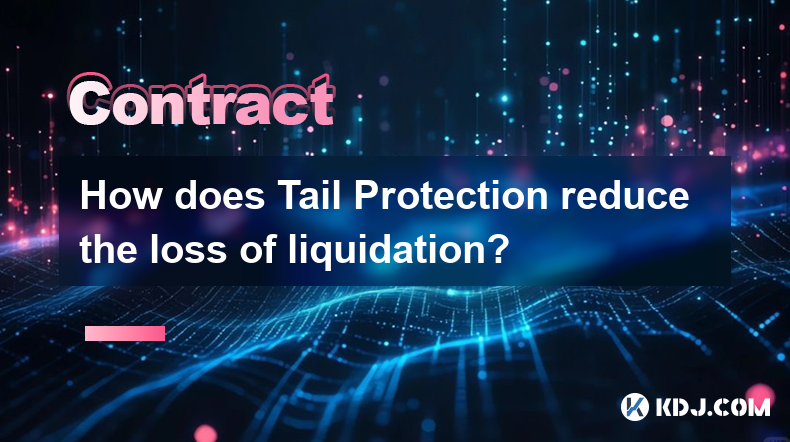
How does Tail Protection reduce the loss of liquidation?
Apr 11,2025 at 01:50am
Introduction to Tail Protection in CryptocurrencyTail Protection is a mechanism designed to mitigate the risks associated with liquidation in cryptocurrency trading. Liquidation occurs when a trader's position is forcibly closed by the exchange due to insufficient margin to cover potential losses. This often happens in leveraged trading, where traders b...
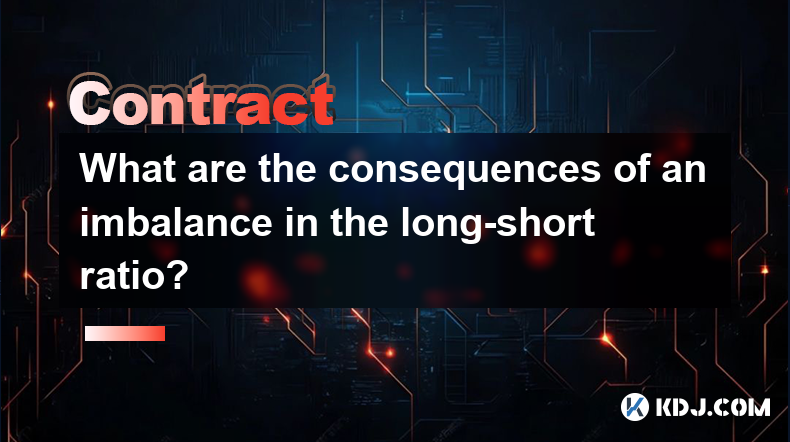
What are the consequences of an imbalance in the long-short ratio?
Apr 13,2025 at 02:50pm
The long-short ratio is a critical metric in the cryptocurrency trading world, reflecting the balance between bullish and bearish sentiments among traders. An imbalance in this ratio can have significant consequences on the market dynamics, affecting everything from price volatility to trading strategies. Understanding these consequences is essential fo...
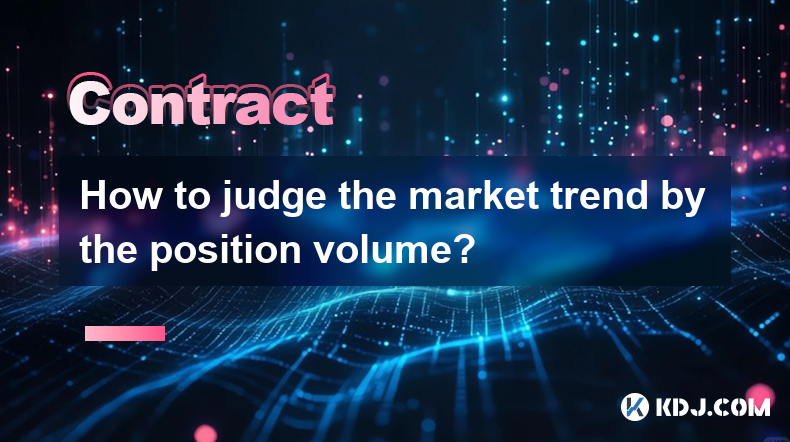
How to judge the market trend by the position volume?
Apr 11,2025 at 02:29pm
Understanding how to judge the market trend by position volume is crucial for any cryptocurrency trader. Position volume, which refers to the total number of open positions in a particular cryptocurrency, can provide valuable insights into market sentiment and potential price movements. By analyzing this data, traders can make more informed decisions ab...

Why does a perpetual contract have no expiration date?
Apr 09,2025 at 08:43pm
Perpetual contracts, also known as perpetual futures or perpetual swaps, are a type of derivative product that has gained significant popularity in the cryptocurrency market. Unlike traditional futures contracts, which have a fixed expiration date, perpetual contracts do not expire. This unique feature raises the question: why does a perpetual contract ...
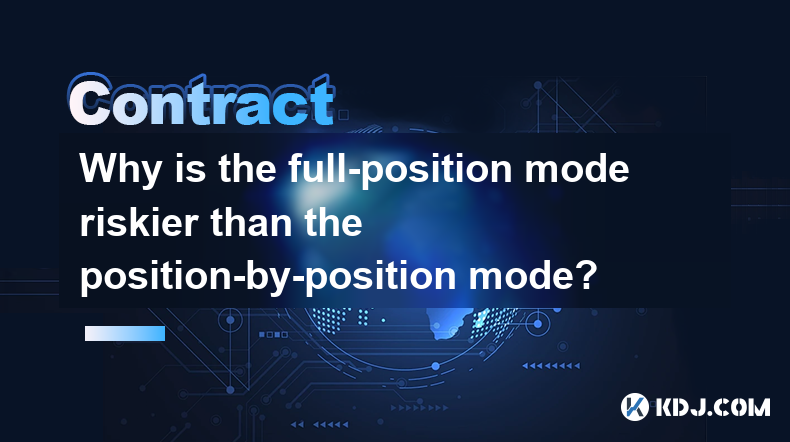
Why is the full-position mode riskier than the position-by-position mode?
Apr 13,2025 at 03:42pm
Why is the Full-Position Mode Riskier Than the Position-by-Position Mode? In the world of cryptocurrency trading, the choice between full-position mode and position-by-position mode can significantly impact the risk profile of a trader's portfolio. Understanding the differences between these two modes is crucial for making informed trading decisions. Th...
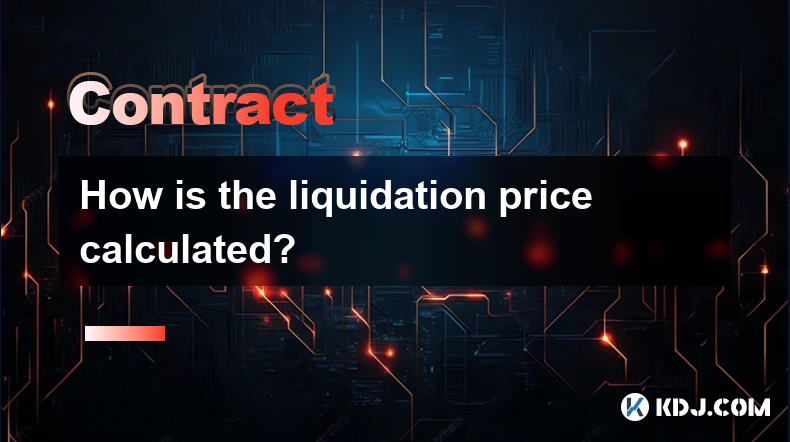
How is the liquidation price calculated?
Apr 12,2025 at 01:35am
Introduction to Liquidation PriceLiquidation price is a critical concept in the world of cryptocurrency trading, particularly when dealing with leveraged positions. Understanding how this price is calculated is essential for traders to manage their risk effectively. The liquidation price is the point at which a trader's position is forcibly closed by th...

How does Tail Protection reduce the loss of liquidation?
Apr 11,2025 at 01:50am
Introduction to Tail Protection in CryptocurrencyTail Protection is a mechanism designed to mitigate the risks associated with liquidation in cryptocurrency trading. Liquidation occurs when a trader's position is forcibly closed by the exchange due to insufficient margin to cover potential losses. This often happens in leveraged trading, where traders b...

What are the consequences of an imbalance in the long-short ratio?
Apr 13,2025 at 02:50pm
The long-short ratio is a critical metric in the cryptocurrency trading world, reflecting the balance between bullish and bearish sentiments among traders. An imbalance in this ratio can have significant consequences on the market dynamics, affecting everything from price volatility to trading strategies. Understanding these consequences is essential fo...

How to judge the market trend by the position volume?
Apr 11,2025 at 02:29pm
Understanding how to judge the market trend by position volume is crucial for any cryptocurrency trader. Position volume, which refers to the total number of open positions in a particular cryptocurrency, can provide valuable insights into market sentiment and potential price movements. By analyzing this data, traders can make more informed decisions ab...

Why does a perpetual contract have no expiration date?
Apr 09,2025 at 08:43pm
Perpetual contracts, also known as perpetual futures or perpetual swaps, are a type of derivative product that has gained significant popularity in the cryptocurrency market. Unlike traditional futures contracts, which have a fixed expiration date, perpetual contracts do not expire. This unique feature raises the question: why does a perpetual contract ...

Why is the full-position mode riskier than the position-by-position mode?
Apr 13,2025 at 03:42pm
Why is the Full-Position Mode Riskier Than the Position-by-Position Mode? In the world of cryptocurrency trading, the choice between full-position mode and position-by-position mode can significantly impact the risk profile of a trader's portfolio. Understanding the differences between these two modes is crucial for making informed trading decisions. Th...

How is the liquidation price calculated?
Apr 12,2025 at 01:35am
Introduction to Liquidation PriceLiquidation price is a critical concept in the world of cryptocurrency trading, particularly when dealing with leveraged positions. Understanding how this price is calculated is essential for traders to manage their risk effectively. The liquidation price is the point at which a trader's position is forcibly closed by th...
See all articles























































































